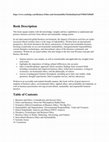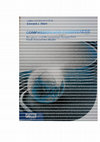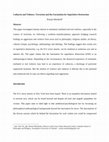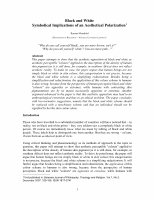Books by Roman Meinhold

Business Ethics and Sustainability, 2022
This book equips readers with the knowledge, insights and key capabilities to understand and prac... more This book equips readers with the knowledge, insights and key capabilities to understand and practice business activities from ethical and sustainable vantage points.
In our interconnected global business environment, the impacts of business activities are under increased ethical scrutiny from a wide range of stakeholders. Written from an international perspective, this book introduces the theory and practice of ethical and sustainable business, focusing in particular on eco-environmental sustainability, intergenerational responsibilities, current disruptive technologies, and intercultural values of the business community and consumers. Written by an expert author who also brings to the fore non-Western concepts and themes, this book:
• features positive case studies, as well as transferrable and applicable key insights from such cases;
• highlights the importance of taking cultural differences into account;
• takes a transdisciplinary approach which considers findings from research fields including conceptual and empirical business ethics, behavioral economics, ecological economics, environmental ethics, and the philosophy of culture;
• weaves in pedagogical features throughout, including up-to-date case studies, study questions, thought experiments, links to popular movies, and key takeaways.
Written in an accessible and student-friendly manner, this book will be of great interest to students of business ethics, environmental ethics, applied ethics, and sustainable development, as well as business practitioners striving toward ethical, sustainable, and responsible business practice.
This volume explores how we should consider our ethical responsibility to future generations with... more This volume explores how we should consider our ethical responsibility to future generations with regard to energy and resources in the ASEAN region. The collection is comprised of philosophical papers that investigate challenges, provide explanations and point out perspectives regarding past, current and future energy production – electrical energy production in particular – by focusing on the implications for future generations. Responsible energy use has become an important issue worldwide. Yet, while the ethics of energy conservation are usually considered with reference to the current population, our use and misuse of energy even more dramatically impacts future generations. The papers in this anthology not only contribute to the academic discourse on intergenerational energy ethics, but should also foster public awareness concerning energy ethics.
Increasing awareness regarding environmental values can lead to changes in consumer behavior and ... more Increasing awareness regarding environmental values can lead to changes in consumer behavior and governmental policy. This book aims to discuss, revaluate and disseminate environmental values emerging in the ASEAN region in current interdisciplinary discourses and in traditional contexts of religions, cultures and philosophy. The anthology focuses on cultural, religious/spiritual and philosophical/
ethical values related to sustainable, intergenerational,
caretaking, organic, and holistic approaches to nature that are
currently (and had been traditionally) emerging in the ASEAN region and beyond.

Ecological, Social & Economic Sustainability - Perspectives for Thailand and ASEAN, 2014
Over the last few decades the Thai economy has been developing and successively integrating with ... more Over the last few decades the Thai economy has been developing and successively integrating with other economies in and beyond the ASEAN region. Due to the ASEAN countries’ integration processes, the community is facing political, economic, social, educational and environmental challenges. In order to turn challenges into opportunities that serve Thailand and the ASEAN region in an inter-generational way, it is pertinent to draft, disseminate and discuss perspectives for sustainability and well-being. The papers in the three sections of this book address environmental problems, values and perspectives implied in the United Nations Millennium Declaration and the ASEAN Declaration on Environmental Sustainability.
This anthology aims to extend and deepen our awareness of ecological, social and economic sustainability in Thailand and the ASEAN region and thus to intensify the discourse amongst decision makers, academics, students and the wider public. The objective of the papers in this volume is to give recommendations on how sustainability in economic, social and environmental sectors could be promoted. This collection of papers seeks to explain why we have to protect the environment in the ASEAN region and it suggests a spectrum of perspectives how that could be pursued. Sustainability promoting suggestions brought forward in this volume range from general remarks (concerning environmental relevant virtues, revaluation and adjustments of attitudes and lifestyles) to concrete recommendations. Such more tangible recommendations include green farming techniques, ethically justifiable forms of land and water usage, distribution and management, stronger promotion of green urban areas and ecosystems, pricing and taxing mechanisms that include sustainable and ecological dimensions, and the promotion of alternative energy, just to name a few.

"Wonach strebt der Mensch? Und was ist ein „gutes“ Leben? Bereits in der Antike wurde bei derarti... more "Wonach strebt der Mensch? Und was ist ein „gutes“ Leben? Bereits in der Antike wurde bei derartigen Fragen auf das Streben des Menschen nach Glück hingewiesen. Fragt man heute einen Westeuropäer nach der Motivation seines Strebens, erhält man nicht selten Antworten, die Begriffe wie Selbstverwirklichung, Lebensqualität und Lifestyle beinhalten.
Unsere Lebensstile und Konsumgewohnheiten scheinen jedoch lokal und global nicht nachhaltig zu sein. Daher werden wir früher oder später gezwungen, die uns scheinbar nahe liegenden individuellen Aspekte Selbstverwirklichung – Lebensfreude – Lebensqualität einerseits, mit sozial-ökologischen Restriktionen andererseits nachhaltig zu vermitteln.
Die vorliegende Arbeit beabsichtigt darzustellen, dass unsere Umweltproblematik nicht zuletzt auf ein Manko an nicht befriedigten persönlichen Bedürfnissen zurückzuführen ist. Daher werden die Hintergründe der Konsummuster beleuchtet; es gilt nicht vorrangig zu zeigen was, sondern warum konsumiert wird. Darüber hinaus werden Denkanstöße skizziert, die als Grundlagen für eine erweiterte Verbraucherbildung dienen können."
Papers by Roman Meinhold
some papers can also be downloaded from my website

In: Compassion and Forgiveness (Edited by Edward Alam), 2013
"This paper explores how compassion can lead to emotionally purifying experiences from a phi... more "This paper explores how compassion can lead to emotionally purifying experiences from a philosophic-anthropological perspective. My hypothesis is that compassion via catharsis can result in forgiveness, provided that an adequate understanding of or for compassion is employed. The investigation begins by briefly dealing with the etymology of compassion by comparing Greek, Latin, English, and German related terms. The second section focuses on Aristotle!s understanding of compassion. According to his Poetics and his Politics, compassion in the context of Art implies therapeutic values. The third and the fourth sections elucidate Arthur Schopenhauer!s account on compassion and that of Friedrich Nietzsche respectively. While for Schopenhauer, compassion is an important value for the foundation of Ethics; Nietzsche contrastingly holds that compassion rather multiplies misery. A fifth part attempts to
synthesize these different standpoints on compassion and tries to elucidate how compassion via catharsis may lead to forgiveness."

This paper investigates human interest in simulated, mediated and real violence, especially in th... more This paper investigates human interest in simulated, mediated and real violence, especially in the context of terrorism, by following a synthetic-transdisciplinary approach bridging research findings on aggression and violence from areas such as philosophy, religious studies, art theory, cultural critique, psychology, anthropology and ethology. The findings suggest that certain acts of superlative destruction, e.g. the 9/11 terror attacks, can be rendered as numinous acts and as imitatio dei. The paper claims that the fascination for superlative destruction (FSD) is an anthropological datum. Depending on the circumstances, the distanced experience of simulated, mediated or real violence may lead to an experience of catharsis, a discharge of particular suppressed emotions. But the relation of violence and catharsis is delicate due to the potential and evidenced risk of copy-cat effects regarding such aggression.

"This paper will posit the sustainable concepts in Ernest Callenbach's Novel Ecotopia. The ecolog... more "This paper will posit the sustainable concepts in Ernest Callenbach's Novel Ecotopia. The ecologically oriented utopia deals with a wide variety of sustainable and holistic issues related to urbanization and community development and illustrates how they could be addressed ideally and practically. Some of those measures have been implemented in a number of countries others are still in high demand or debated by environmentalist, politicians, and economists. The detailed and practical ecological solutions in Ecotopia include, but are not limited to, all possible types of waste management encompassing recycling programs, plant derived biodegradable durable plastics, renewable energy, car and airplane free transportation, a wide variety of public transport opportunities (high and simple tech, such as free public bicycles), organic farming, renaturation, and reforrestation.
In Ecotopia ecologically compatible high-technology exists besides postmaterialistic lifestyles and attitudes of it’s citizens. Environmental paradigms include: intergenerational justice, sustainability, steady-state economy, prices of goods that reflect the real costs (speak the ‘ecological truth’), anti-consumerism, slowly declining population, and strict environmental laws. The ecocentric worldview gives preference to the quality of life not to the economic paradigm of growth.
This paper will examine which of Ecotopia's measurements in urbanization and community development are still desired for future sustainable and holistic development, especially in the light of the fast growing major cities in Asia. For the purpose of giving a normative orientation for holistic-sustainable development an index of holistic well-being, comprised of 10 sub-indices, will be proposed.
"
The paper investigates how Viagra marketing utilizes the human condition of comparative meliorati... more The paper investigates how Viagra marketing utilizes the human condition of comparative melioration. Comparative melioration is the drive of humans to improve themselves and their environment by comparing their own condition or status quo with those of others or with potential conditions. In Viagra marketing the utilization of this human condition is linked with the strategy of pathogenization, that is the constant widening and re-definition of the notions and concepts of disease, disorder, and dysfunction. Side effects of the pathologization are that this strategy itself is creating additional medical problems, that means that the pathologization is pathogenic and therefore it is also pathologic. The paper concludes with an enlightenment-appeal according to which one should utilize various available resources of information to improve one's own understanding of medical conditions.
Dieser Beitrag zieht Parallelen zwischen der ästhetischen Inszenierung der Anschläge des 11. Sept... more Dieser Beitrag zieht Parallelen zwischen der ästhetischen Inszenierung der Anschläge des 11. Septembers 2001 und bestimmten Genre der Kunst und der Popularkultur. Parallelen zwischen Terror und Kunst bzw. Alltagskultur werden in Bezug auf folgende Aspekte gezogen: die Namensgebung 9/11, die ästhetisierte Inszenierung, die Faszination an superlativer Destruktion, die Diffusion von Realität und Fiktion, das Vakuum nicht mehr vorhandener Architektur und die Zweckentfremdung von Alltagsgegenständen zu Terrorwaffen und Kunstexponaten. Der Beitrag kommt zu dem Ergebnis, dass Terroristen und Medien in von beiden Seiten kalkulierter Zusammenarbeit, ein „Werk“ „geschaffen“ haben das sich vor den Augen der Medienkonsumenten nur unscharf von bestimmten Produkten der Popularkultur oder der avantgardistischen Kunst abhebt.
This paper examines the human condition as portrayed in the film trilogy “The Matrix”. Furthermor... more This paper examines the human condition as portrayed in the film trilogy “The Matrix”. Furthermore it shows the relevance of the movies educational contribution with regard to its criticism of contemporary life. The film reflects current threats to freedom experienced by movie-goers in a “real” world, heavily dependent on machines and electronic devices. It provides an example of an applied popularized philosophy. It incorporates philosophical themes in the plot – reality, existence, knowledge, belief, free will, determinism, and cultural critique – and makes these themes approachable and palatable for a wider audience. I will argue that such contribution, though sometimes flawed, should be welcomed by educators of philosophy.

This paper attempts to show that the aesthetic opposition of black and white as
aesthetic percept... more This paper attempts to show that the aesthetic opposition of black and white as
aesthetic perceptible "colours" applied to the description of the density of human
skin pigment (as it is still done, for example, in southern Africa) does not reflect
aesthetic reality. To make its case, the paper argues that human beings are not
simply black or white in skin colour; this categorisation is not precise, because
the black and white scheme is a simplifying reductionism. Besides being a
simplification and reductionism, the application of this colour scheme to humans
is also wrong, because from the perspective of human perception black and white
"colours" are opposites or extremes, while humans with contrasting skin
pigmentations are by no means necessarily opposites or extremes. Another
argument advanced in the paper is that this aesthetic opposition may lead to an
anthropological extremism and thus to an ethical problem. The paper concludes
with two normative suggestions, namely that the black and white scheme should
be replaced with a non-binary scheme and that an individual should not be
signified by her/his skin colour alone.
This paper tries to investigate which aspects of human nature are responsible for the recurrence ... more This paper tries to investigate which aspects of human nature are responsible for the recurrence of new fashions. It is divided into five sections: the first explains the multidisciplinary approach used in the research on this phenomenon, the second provides a – very brief and stroboscopic – historical overview of the issue in question, the third distinguishes different notions of fashion, the fourth introduces the term meta-goods as indicators of values and symbols for philosophic-anthropological features in fashion
advertisements and the last section elucidates the myths narrated by fashion advertisements, which are based on philosophic-anthropological implications.
Interviews by Roman Meinhold

In addition to products and services, multinational corporations sell myths, values, and immateri... more In addition to products and services, multinational corporations sell myths, values, and immaterial goods. These “meta-goods,” which include prestige, beauty, and strength, are major components of successful marketing and advertising. Fashion ads mine deeply rooted human values, ideals, and desires, channeled through social recognition, beautification, and rejuvenation. Although referencing meta-goods is obvious to some consumers, their connection to philosophical theories of human nature is less apparent, even among the marketers and advertisers who use them. This book will appeal to researchers and students of cultural studies, media studies, marketing, advertising, fashion, sociology, anthropology, philosophy, and psychology, and to anyone interested in the operation of fashion.
source: https://cup.columbia.edu/book/978-3-8376-2437-3/fashion-myths
produced by Yong Luo
roman-meinhold.com
gcrc.au.edu
philo-religion.au.edu
au.edu
Uploads
Books by Roman Meinhold
In our interconnected global business environment, the impacts of business activities are under increased ethical scrutiny from a wide range of stakeholders. Written from an international perspective, this book introduces the theory and practice of ethical and sustainable business, focusing in particular on eco-environmental sustainability, intergenerational responsibilities, current disruptive technologies, and intercultural values of the business community and consumers. Written by an expert author who also brings to the fore non-Western concepts and themes, this book:
• features positive case studies, as well as transferrable and applicable key insights from such cases;
• highlights the importance of taking cultural differences into account;
• takes a transdisciplinary approach which considers findings from research fields including conceptual and empirical business ethics, behavioral economics, ecological economics, environmental ethics, and the philosophy of culture;
• weaves in pedagogical features throughout, including up-to-date case studies, study questions, thought experiments, links to popular movies, and key takeaways.
Written in an accessible and student-friendly manner, this book will be of great interest to students of business ethics, environmental ethics, applied ethics, and sustainable development, as well as business practitioners striving toward ethical, sustainable, and responsible business practice.
ethical values related to sustainable, intergenerational,
caretaking, organic, and holistic approaches to nature that are
currently (and had been traditionally) emerging in the ASEAN region and beyond.
This anthology aims to extend and deepen our awareness of ecological, social and economic sustainability in Thailand and the ASEAN region and thus to intensify the discourse amongst decision makers, academics, students and the wider public. The objective of the papers in this volume is to give recommendations on how sustainability in economic, social and environmental sectors could be promoted. This collection of papers seeks to explain why we have to protect the environment in the ASEAN region and it suggests a spectrum of perspectives how that could be pursued. Sustainability promoting suggestions brought forward in this volume range from general remarks (concerning environmental relevant virtues, revaluation and adjustments of attitudes and lifestyles) to concrete recommendations. Such more tangible recommendations include green farming techniques, ethically justifiable forms of land and water usage, distribution and management, stronger promotion of green urban areas and ecosystems, pricing and taxing mechanisms that include sustainable and ecological dimensions, and the promotion of alternative energy, just to name a few.
Unsere Lebensstile und Konsumgewohnheiten scheinen jedoch lokal und global nicht nachhaltig zu sein. Daher werden wir früher oder später gezwungen, die uns scheinbar nahe liegenden individuellen Aspekte Selbstverwirklichung – Lebensfreude – Lebensqualität einerseits, mit sozial-ökologischen Restriktionen andererseits nachhaltig zu vermitteln.
Die vorliegende Arbeit beabsichtigt darzustellen, dass unsere Umweltproblematik nicht zuletzt auf ein Manko an nicht befriedigten persönlichen Bedürfnissen zurückzuführen ist. Daher werden die Hintergründe der Konsummuster beleuchtet; es gilt nicht vorrangig zu zeigen was, sondern warum konsumiert wird. Darüber hinaus werden Denkanstöße skizziert, die als Grundlagen für eine erweiterte Verbraucherbildung dienen können."
Papers by Roman Meinhold
synthesize these different standpoints on compassion and tries to elucidate how compassion via catharsis may lead to forgiveness."
In Ecotopia ecologically compatible high-technology exists besides postmaterialistic lifestyles and attitudes of it’s citizens. Environmental paradigms include: intergenerational justice, sustainability, steady-state economy, prices of goods that reflect the real costs (speak the ‘ecological truth’), anti-consumerism, slowly declining population, and strict environmental laws. The ecocentric worldview gives preference to the quality of life not to the economic paradigm of growth.
This paper will examine which of Ecotopia's measurements in urbanization and community development are still desired for future sustainable and holistic development, especially in the light of the fast growing major cities in Asia. For the purpose of giving a normative orientation for holistic-sustainable development an index of holistic well-being, comprised of 10 sub-indices, will be proposed.
"
aesthetic perceptible "colours" applied to the description of the density of human
skin pigment (as it is still done, for example, in southern Africa) does not reflect
aesthetic reality. To make its case, the paper argues that human beings are not
simply black or white in skin colour; this categorisation is not precise, because
the black and white scheme is a simplifying reductionism. Besides being a
simplification and reductionism, the application of this colour scheme to humans
is also wrong, because from the perspective of human perception black and white
"colours" are opposites or extremes, while humans with contrasting skin
pigmentations are by no means necessarily opposites or extremes. Another
argument advanced in the paper is that this aesthetic opposition may lead to an
anthropological extremism and thus to an ethical problem. The paper concludes
with two normative suggestions, namely that the black and white scheme should
be replaced with a non-binary scheme and that an individual should not be
signified by her/his skin colour alone.
advertisements and the last section elucidates the myths narrated by fashion advertisements, which are based on philosophic-anthropological implications.
Interviews by Roman Meinhold
source: https://cup.columbia.edu/book/978-3-8376-2437-3/fashion-myths
produced by Yong Luo
roman-meinhold.com
gcrc.au.edu
philo-religion.au.edu
au.edu
In our interconnected global business environment, the impacts of business activities are under increased ethical scrutiny from a wide range of stakeholders. Written from an international perspective, this book introduces the theory and practice of ethical and sustainable business, focusing in particular on eco-environmental sustainability, intergenerational responsibilities, current disruptive technologies, and intercultural values of the business community and consumers. Written by an expert author who also brings to the fore non-Western concepts and themes, this book:
• features positive case studies, as well as transferrable and applicable key insights from such cases;
• highlights the importance of taking cultural differences into account;
• takes a transdisciplinary approach which considers findings from research fields including conceptual and empirical business ethics, behavioral economics, ecological economics, environmental ethics, and the philosophy of culture;
• weaves in pedagogical features throughout, including up-to-date case studies, study questions, thought experiments, links to popular movies, and key takeaways.
Written in an accessible and student-friendly manner, this book will be of great interest to students of business ethics, environmental ethics, applied ethics, and sustainable development, as well as business practitioners striving toward ethical, sustainable, and responsible business practice.
ethical values related to sustainable, intergenerational,
caretaking, organic, and holistic approaches to nature that are
currently (and had been traditionally) emerging in the ASEAN region and beyond.
This anthology aims to extend and deepen our awareness of ecological, social and economic sustainability in Thailand and the ASEAN region and thus to intensify the discourse amongst decision makers, academics, students and the wider public. The objective of the papers in this volume is to give recommendations on how sustainability in economic, social and environmental sectors could be promoted. This collection of papers seeks to explain why we have to protect the environment in the ASEAN region and it suggests a spectrum of perspectives how that could be pursued. Sustainability promoting suggestions brought forward in this volume range from general remarks (concerning environmental relevant virtues, revaluation and adjustments of attitudes and lifestyles) to concrete recommendations. Such more tangible recommendations include green farming techniques, ethically justifiable forms of land and water usage, distribution and management, stronger promotion of green urban areas and ecosystems, pricing and taxing mechanisms that include sustainable and ecological dimensions, and the promotion of alternative energy, just to name a few.
Unsere Lebensstile und Konsumgewohnheiten scheinen jedoch lokal und global nicht nachhaltig zu sein. Daher werden wir früher oder später gezwungen, die uns scheinbar nahe liegenden individuellen Aspekte Selbstverwirklichung – Lebensfreude – Lebensqualität einerseits, mit sozial-ökologischen Restriktionen andererseits nachhaltig zu vermitteln.
Die vorliegende Arbeit beabsichtigt darzustellen, dass unsere Umweltproblematik nicht zuletzt auf ein Manko an nicht befriedigten persönlichen Bedürfnissen zurückzuführen ist. Daher werden die Hintergründe der Konsummuster beleuchtet; es gilt nicht vorrangig zu zeigen was, sondern warum konsumiert wird. Darüber hinaus werden Denkanstöße skizziert, die als Grundlagen für eine erweiterte Verbraucherbildung dienen können."
synthesize these different standpoints on compassion and tries to elucidate how compassion via catharsis may lead to forgiveness."
In Ecotopia ecologically compatible high-technology exists besides postmaterialistic lifestyles and attitudes of it’s citizens. Environmental paradigms include: intergenerational justice, sustainability, steady-state economy, prices of goods that reflect the real costs (speak the ‘ecological truth’), anti-consumerism, slowly declining population, and strict environmental laws. The ecocentric worldview gives preference to the quality of life not to the economic paradigm of growth.
This paper will examine which of Ecotopia's measurements in urbanization and community development are still desired for future sustainable and holistic development, especially in the light of the fast growing major cities in Asia. For the purpose of giving a normative orientation for holistic-sustainable development an index of holistic well-being, comprised of 10 sub-indices, will be proposed.
"
aesthetic perceptible "colours" applied to the description of the density of human
skin pigment (as it is still done, for example, in southern Africa) does not reflect
aesthetic reality. To make its case, the paper argues that human beings are not
simply black or white in skin colour; this categorisation is not precise, because
the black and white scheme is a simplifying reductionism. Besides being a
simplification and reductionism, the application of this colour scheme to humans
is also wrong, because from the perspective of human perception black and white
"colours" are opposites or extremes, while humans with contrasting skin
pigmentations are by no means necessarily opposites or extremes. Another
argument advanced in the paper is that this aesthetic opposition may lead to an
anthropological extremism and thus to an ethical problem. The paper concludes
with two normative suggestions, namely that the black and white scheme should
be replaced with a non-binary scheme and that an individual should not be
signified by her/his skin colour alone.
advertisements and the last section elucidates the myths narrated by fashion advertisements, which are based on philosophic-anthropological implications.
source: https://cup.columbia.edu/book/978-3-8376-2437-3/fashion-myths
produced by Yong Luo
roman-meinhold.com
gcrc.au.edu
philo-religion.au.edu
au.edu